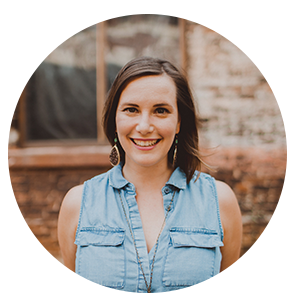
5 money-saving tips to boost your savings

How to balance living well with saving smart in your 30s

Healthy money habits deliver a sense of well-being, no matter how much we earn.
How much money do you have right now in your savings account? If you’re anything like the average American, it may not be much at all.
“The state of our finances can weigh heavily on us,” says empowered money coach and Blissful Budget founder Rachel Peavy. “It gets tied to our idea of how well we believe we can provide for ourselves and our families. When we feel there isn’t enough, we have the sense our survival is being threatened.”
 Practicing healthy money habits can translate to a positive outlook, and allows for more opportunities to take calculated risks in life. “I love seeing my clients build their cushion of savings,” she says. “That growing safety net often translates to a deep sense of accomplishment – and the confidence to take risks, like making a rewarding career change.”
Practicing healthy money habits can translate to a positive outlook, and allows for more opportunities to take calculated risks in life. “I love seeing my clients build their cushion of savings,” she says. “That growing safety net often translates to a deep sense of accomplishment – and the confidence to take risks, like making a rewarding career change.”
According to the research, when it comes to overall life satisfaction, our “liquid wealth” (i.e., the balance in our checking and savings accounts) better predicts well-being than the tally of our raw earnings or investments.
“Many individuals believe increasing income or total wealth will improve their happiness,” the study claims. “[But] they may also benefit by building a financial buffer in their checking and savings accounts. We found this buffer to be associated with improved well-being regardless of how much a person earns, invests, or owes.”
Given the correlation between a consistently higher amount of savings and greater overall satisfaction in life, why do so many Americans have so little savings?
Money and power: How beliefs can hold us back
“Many people feel powerless just thinking about money,” Peavy explains. “They think they need to be finance experts to get it right. And it’s an unfortunate misperception, because the truth is that each of us is very capable of working with money to build a rewarding life, whatever that looks like to us.”
Since issues around money are inherently emotional, Peavy takes an approach to money coaching she describes as “both spiritual and practical.” And it starts with examining our beliefs.
“We have all these beliefs or stories about our money in our heads,” she says. “Sometimes we create them ourselves; sometimes we take them on because they’re what our families believe. Examples would be, ‘I’ll never have enough,’ or ‘I have no idea what I’m doing,’ or ‘Money is bad,’ or ‘Money is all that matters.’
The stories, she says, affect the way each of us approaches our relationship to money. “Until you address the underlying beliefs, even the smartest budget in the world won’t take you very far.”
Save – and spend – with purpose
Once you start to crack the code on what beliefs or stories are keeping you stuck, Peavy says it’s time to make a plan. “A lot of overspending comes down to a lack of planning. So I work with my clients to customize a roadmap that takes into account their beliefs and their habits. For example, ‘Cut spending in half, and divert that flow to savings.’
“Regardless of the plan, it’s important to know why you’re saving in the first place. When intention informs your saving habits, the peace of mind saving money generates becomes a reward unto itself. I love watching my clients find that sense of empowerment that comes from knowing they’re fully capable of providing for themselves.”
5 steps to blissful budgeting
What does blissful budgeting look like, anyway? Peavy offers a behind-the-scenes look at how she guides her clients through their process:
Peavy recommends putting a roadblock into place for moments when spending is harder to resist. “Put protections in place so you have to think a bit longer before making the actual purchase. If you’re an online shopper, that might be as simple as deleting your credit card from Amazon. And then celebrate the relief; the peace of mind you feel when you override that impulse and stick to your intentions.”
Ready to start healthy money habits? Read on to learn how you can make your accounts work harder for you.
Related content


